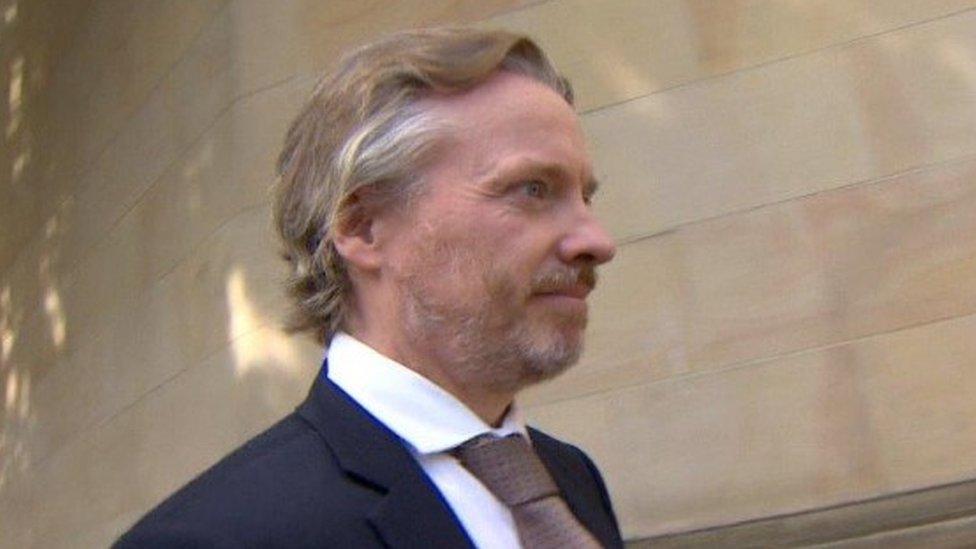Craig Whyte trial: Businessman 'laughed' at Rangers deal warning
- Published
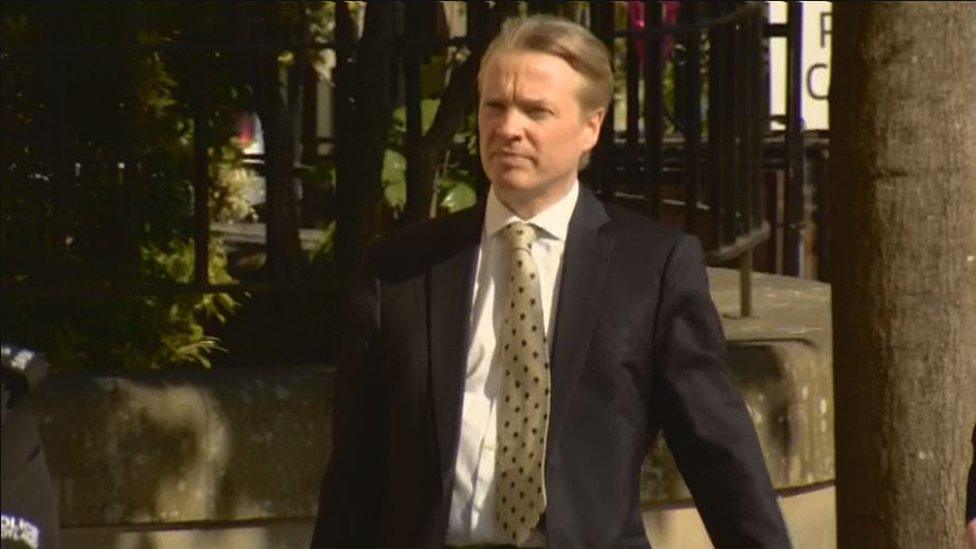
Craig Whyte denies fraudulently acquiring the Ibrox side
A jury has heard that Craig Whyte would just laugh when his company's lawyer advised him not to buy Rangers.
Giving evidence to Mr Whyte's fraud trial at the High Court in Glasgow, Gary Withey said he thought the businessman was "mad" to be trying to take over the football club.
The lawyer also said he thought Mr Whyte did not know what he was getting himself into.
Mr Whyte denies a charge of acquiring Rangers by fraud in May 2011.
He also denies a second charge under the Companies Act.
Mr Withey, a corporate lawyer who had worked for English firm Collyer Bristow, was instructed in the Ranger takeover talks after meeting Mr Whyte in mid-2010.
Giving evidence for a fourth day, Mr Withey told the court he had repeatedly told Mr Whyte not to proceed with the deal to buy the football club because he claimed: "I didn't like the feel of the transaction."
When asked by advocate depute Alex Prentice QC why he didn't like it, he replied: "I felt as though there were too many things to be discovered.
"It was also information was having to be pulled out."
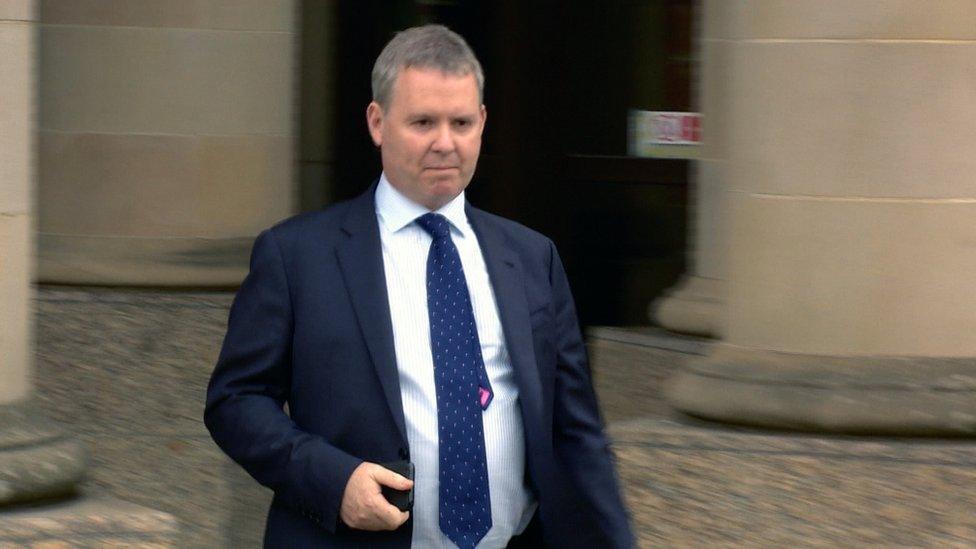
Legal advisor Gary Withey has been giving evidence at the High Court in Glasgow
Mr Prentice asked what the purpose of him giving Mr Whyte advice was and he said: "It was my opinion at the time".
Mr Withey was asked: "What was his response every time you raised this?"
The witness replied: "He would laugh."
The prosecutor asked Mr Withey how he responded to that and he said: "He's the client."
Jurors heard Mr Withey was "concerned" that the Murray group would not go through with the takeover if they knew how it would be funded.
Asked why, the witness said: "Because they probably wouldn't have liked the thought of him using Ticketus."
He told the court that the proposal was "not concealed but it wasn't revealed".
Mr Withey said they were instructed by Mr Whyte not to reveal it. He also said that if the takeover panel required the information it "had to be shown".
The witness claimed Mr Whyte said it was thought the Rangers owners, the Murray group, would walk away if they knew.
'Fan of the club'
The court later heard from private investor Ross Bryan who was an investment manager with Octopus Capital between 2009 and 2012.
He explained Octopus was an umbrella company that invests money for clients and Ticketus was one of the investment products.
Ticketus bought tickets for events at a reduced rate and appointed another company to sell them on.
Mr Bryan said it was common with football tickets to pass them back to the clubs to sell them.
He identified Mr Whyte in the dock and said he met him in September or October 2010 after being contacted by a broker who said the businessman "might want to acquire Glasgow Rangers".
Mr Prentice QC, prosecuting, asked: "Prior to that conversation were you aware of the possibility of Rangers being for sale?"
Mr Bryan said he only heard of previous bids he had read in newspapers.
Asked what was discussed at the meeting with Mr Whyte he said: "In very broad terms, Mr Whyte explained that he was from this neck of the woods, a fan of the club and would be interested in making an offer to the owner to see if they would sell."
He said he explained the Ticketus procedure and said the discussion was "specific to Rangers and acquisition of the club".
Mr Bryan was asked if he was aware that at the time Sir David Murray owned the majority of shares in Rangers.
He told the court that after Christmas when the deal had not closed, the firm were "keen" to make sure Sir David knew they were involved or that a financial institution was involved.
Season ticket sales
Prosecutors allege Mr Whyte pretended to Sir David Murray, and others, that funds were available to make all required payments to acquire a "controlling and majority stake" in the club.
The Crown alleges Mr Whyte had only £4m available from two sources at the time but took out a £24m loan from Ticketus against three years of future season ticket sales.
The court has heard the sale was eventually made to Mr Whyte for £1 but came with obligations to pay an £18m bank debt, a £2.8m "small tax case" bill, £1.7m for stadium repairs, £5m for players and £5m in working capital.
The second charge under the Companies Act centres on the £18m payment between Mr Whyte's Wavetower company and Rangers to clear a bank debt.
The trial before eight men and seven women continues.
- Published15 May 2017

- Published11 May 2017

- Published10 May 2017
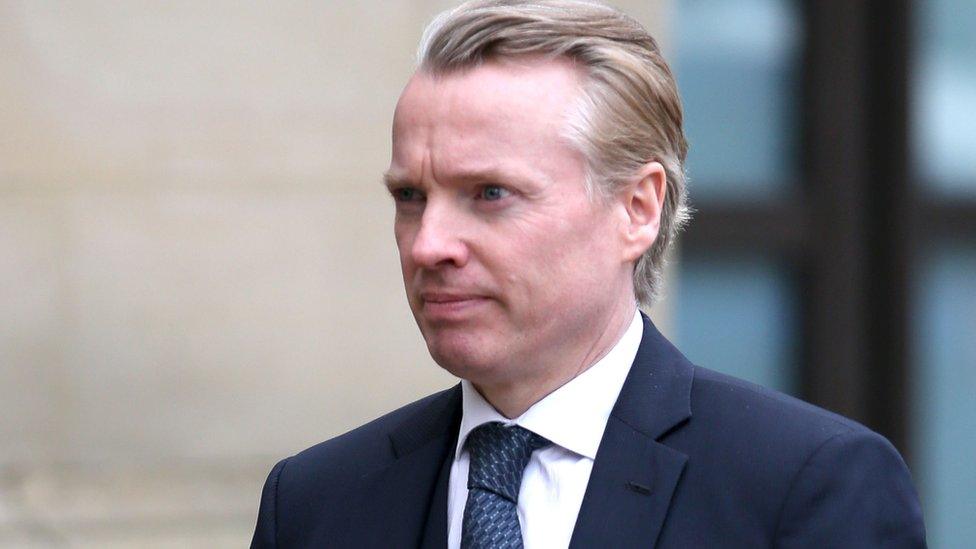
- Published9 May 2017
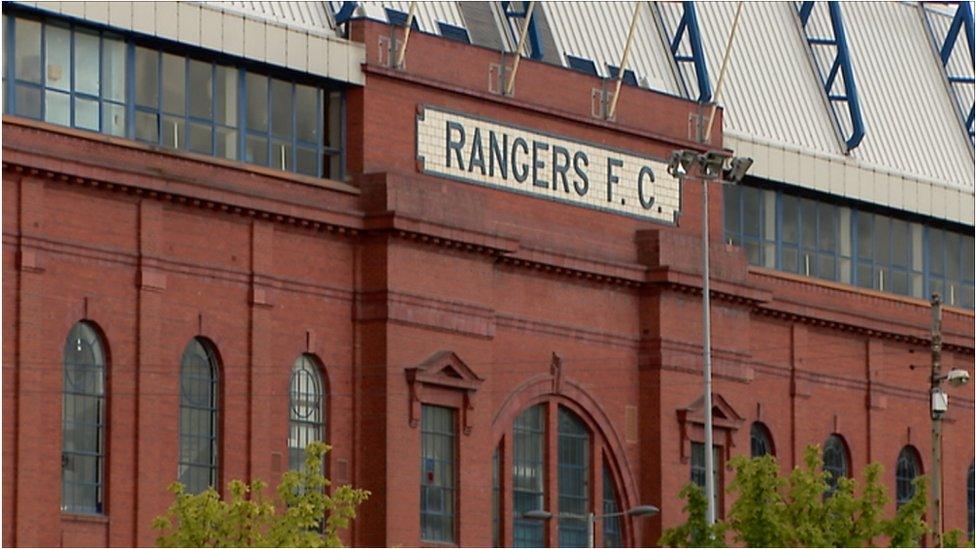
- Published3 May 2017
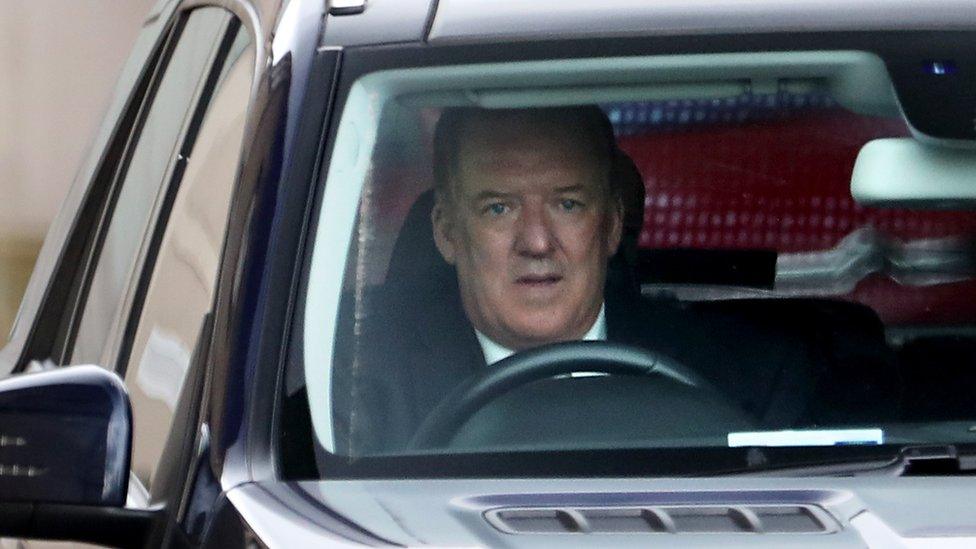
- Published25 April 2017
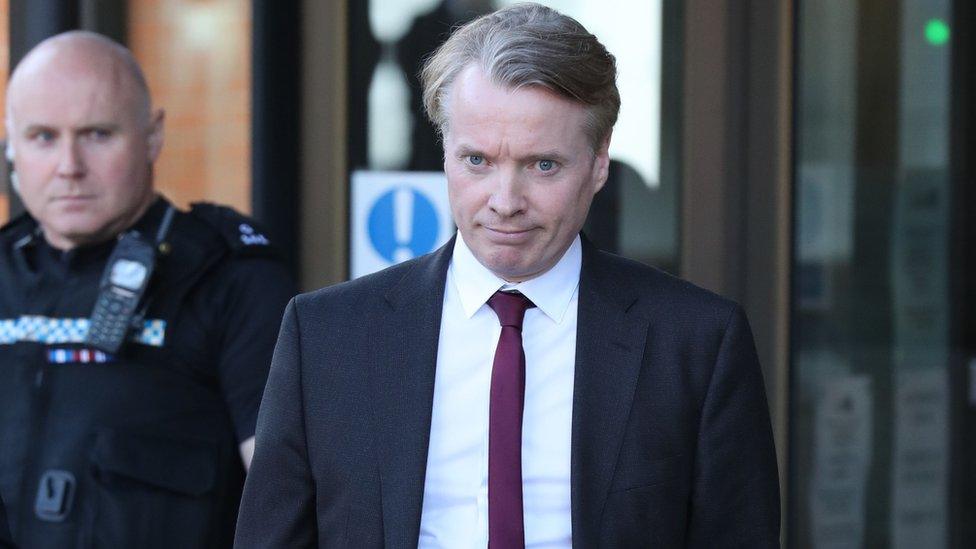
- Published24 April 2017

- Published21 April 2017

- Published20 April 2017
